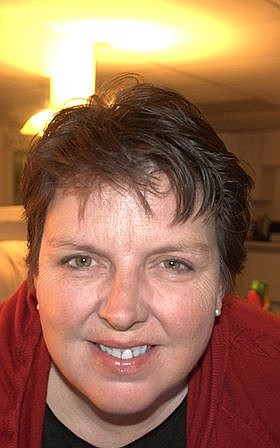At some point seven years ago - she can't remember when, exactly - LJ Burton could no longer sound off on U.S. Sen. Johnny Isakson's Facebook page.
"I don't know why," Burton said, "other than I disagree with him on pretty much everything."
Specifically, she thought the Republican from Georgia needed to expand unemployment benefits, support the Affordable Care Act and "stop obstructing absolutely everything." Isakson, or someone in his office, decided he no longer needed to hear her takes. She was blocked from commenting.
Recently, though, American Civil Liberties Union lawyers have challenged this kind of move by politicians across the United States.
They say official government Facebook and Twitter accounts are non-stop town-hall meetings, and elected officials can't mute the voices they don't like.
On Tuesday, ACLU of Georgia Legal Director Sean Young wrote a letter to Isakson on Burton's behalf, demanding he allow her to comment on his page again. Burton said she received a call that night from a representative from Isakson's office, apologizing. She said they didn't explain what caused the problem in the first place.
"She said she didn't know, at least," Burton told the Times Free Press.
A spokeswoman in Isakson's office did not answer an emailed question asking whether she knew how Burton got blocked, instead writing back, "We try to keep our social media forums family friendly and screen comments for profanity or offensive language."
In addition to Isakson, Young wrote similar letters to U.S. Rep. John Lewis, D-Ga., and U.S. Rep. Barry Loudermilk, R-Ga., on Tuesday, as well as a letter to U.S. Rep. Drew Ferguson, R-Ga., in December. In a statement to Roll Call, Loudermilk said the ACLU's letter was "absurd."
"People are free to express their views and opinions in a reasonable manner," he said. "The only individuals who are ever blocked or have their comments hidden are those who violate the policies of the page."
But Young said Loudermilk's policies create "a constitutional problem." Profanity, hateful language, personal attacks and name-calling will get you banned from Loudermilk's page.
"Debate is very often very heated and passionate," Young said. "Criticism of government officials is frankly the cornerstone of the First Amendment and Democracy."
He added: "Politicians need to get with the program. They need to stop treating government pages as their personal fan page."
Legal fights on government social media pages are relatively new, and higher court judges still are deciding the rules. Brian Davison, a Loudon County, Va., resident, filed separate lawsuits against the local board of supervisors and board of education two years ago. Members of both government bodies had banned him from commenting on their Facebook pages.
In the school board case, someone deleted Davison's critical comments about test scores on the school system's page. School board members had also blocked him from their official pages. Last July, U.S. District Court Judge Anthony Trenga ruled, albeit with a lack of confidence, that those moves were not necessarily unconstitutional.
"It is not clear as a legal matter whether the Facebook pages" are a public forum, Trenga wrote.
Days later, in the same federal district, Judge James Cacheris ruled just the opposite. Loudon County Board of Supervisors Chair Phyllis Randall had blocked Davison from her Facebook page for 12 hours after he posted what she said was slander about school board members' use of money.
Cacheris ruled that Randall's action violated the First Amendment because she did not create a neutral policy explaining what type of comments would get blocked.
"By prohibiting Plaintiff from participating in her online forum because she took offense at his claim that her colleagues in the county government had acted unethically," Cacheris wrote, "Defendant committed a cardinal sin under the First Amendment."
Lawyers have appealed both cases. The ACLU has pursued similar cases against the governor of Maryland, the governor of Maine and U.S. Rep. Paul Gosar, R-Ariz. The Knight First Amendment Institute also filed a lawsuit against President Donald Trump in July, for his practice of blocking people on his Twitter account.
Contact staff writer Tyler Jett at 423-757-6476 or tjett@timesfreepress.com. Follow him on Twitter @LetsJett.
